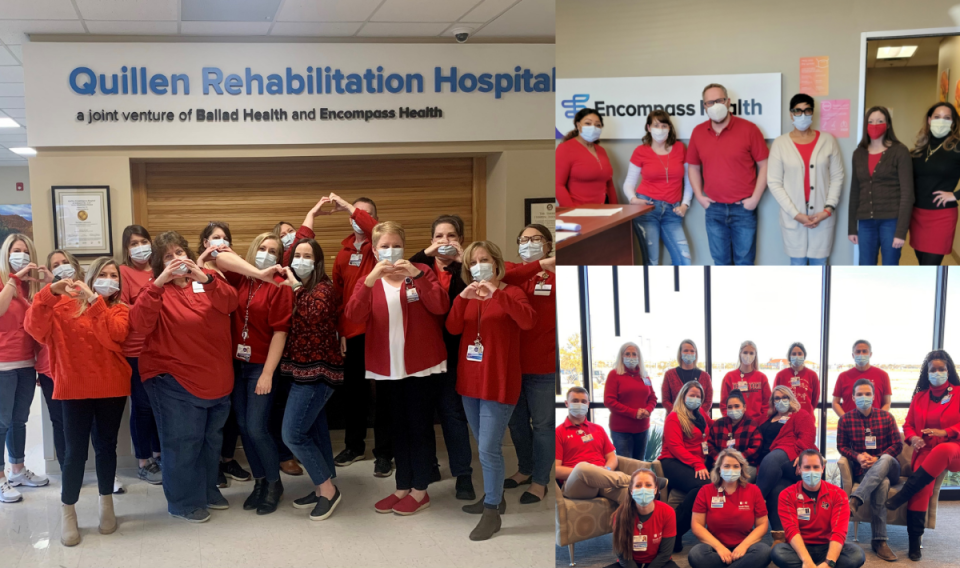I support the AHA’s mission because the stakes are too high not to.
Dawn Rock, Chief Compliance Officer, Encompass Health
In January 2019, Encompass Health became a national supporter of the American Stroke Association (ASA), a division of the American Heart Association (AHA), and its Together to End Stroke initiative.
Stroke affects an estimated 800,000 people per year, and Encompass Health is a leader in stroke rehabilitation. This strategic sponsorship aims to educate individuals that stroke is preventable, treatable and beatable.
As part of the sponsorship, Encompass Health has worked with the AHA/ASA to develop educational opportunities and resources for healthcare professionals, patients and caregivers to help fight heart disease and stroke.
Materials and Resources
Life After Stroke guide: More than 137,000 Life After Stroke guides have been distributed through our hospitals and online. This resource is an educational guide and workbook for stroke survivors and their caregivers to help them during their recovery and is available in English and Spanish.
Simply Good Cookbook: We’ve created 14 new recipes and three recipe videos for the Simply Good Cookbook — a brand new cookbook developed for stroke survivors and their families with modifications for individuals who have trouble swallowing (available in English and Spanish).
Post-Stroke Care in the Early Recovery Period: This continuing education e-course for clinicians provides an overview of the current best practices in post-stroke care.
Caregiver Support: A Facebook panel discussion for National Caregiver Month in November 2020 on ASA, AHA and Encompass Health channels featured real caregivers sharing their tips and challenges. It received more than 132,000 views.
Stroke How To videos: Six stroke rehabilitation “How To” videos were developed, including step-by-step instructions for daily living activities for caregivers and individuals recovering from a stroke.
Go Red for Women: Encompass Health has also served as a signature sponsor of 66 Go Red for Women luncheons across the country with more than 35,000 attendees who learned about the warning signs of stroke and the deficits a stroke patient may face through onsite art, miniature golf and F.A.S.T. activities.
Stroke Support Group Lesson Modules: Three stroke support group lesson modules are under development to better support group leaders on the topics of post-stroke pain, post-stroke depression and personality changes after a stroke.
A Mission Close to the Heart
In addition to these resources, Encompass Health has shared several stories of recovery after stroke from real patients, as well as its expertise in the area of stroke recovery and rehabilitation through the AHA/ASA blog and local news outlets.
Encompass Health Senior Vice President and Chief Compliance Officer Dawn Rock, who served as co-chair of the Go Red for Women campaign in Birmingham, Alabama, in 2019, said Encompass Health’s support of AHA/ASA is important to her.
“I support the AHA’s mission because the stakes are too high not to. One in three women will die from cardiovascular disease. These are our mothers, our sisters, our daughters and our friends. We owe it to them to do everything we can to support research and medical breakthroughs that will eradicate heart disease and stroke,” Rock said.
“The issue hit close to home when my sister had multiple open heart surgeries to repair a dangerous blockage. That harrowing experience led me to commit to raising public awareness about cardiovascular disease and supporting the AHA’s initiatives, and I’m proud to work for a company that shares that commitment.”
Encompass Health looks forward to building on the momentum and broadening the impact of this sponsorship in 2022 and beyond.
The content of this site is for informational purposes only and should not be taken as professional medical advice. Always seek the advice of your physician or other qualified healthcare provider with any questions you may have regarding any medical conditions or treatments.



